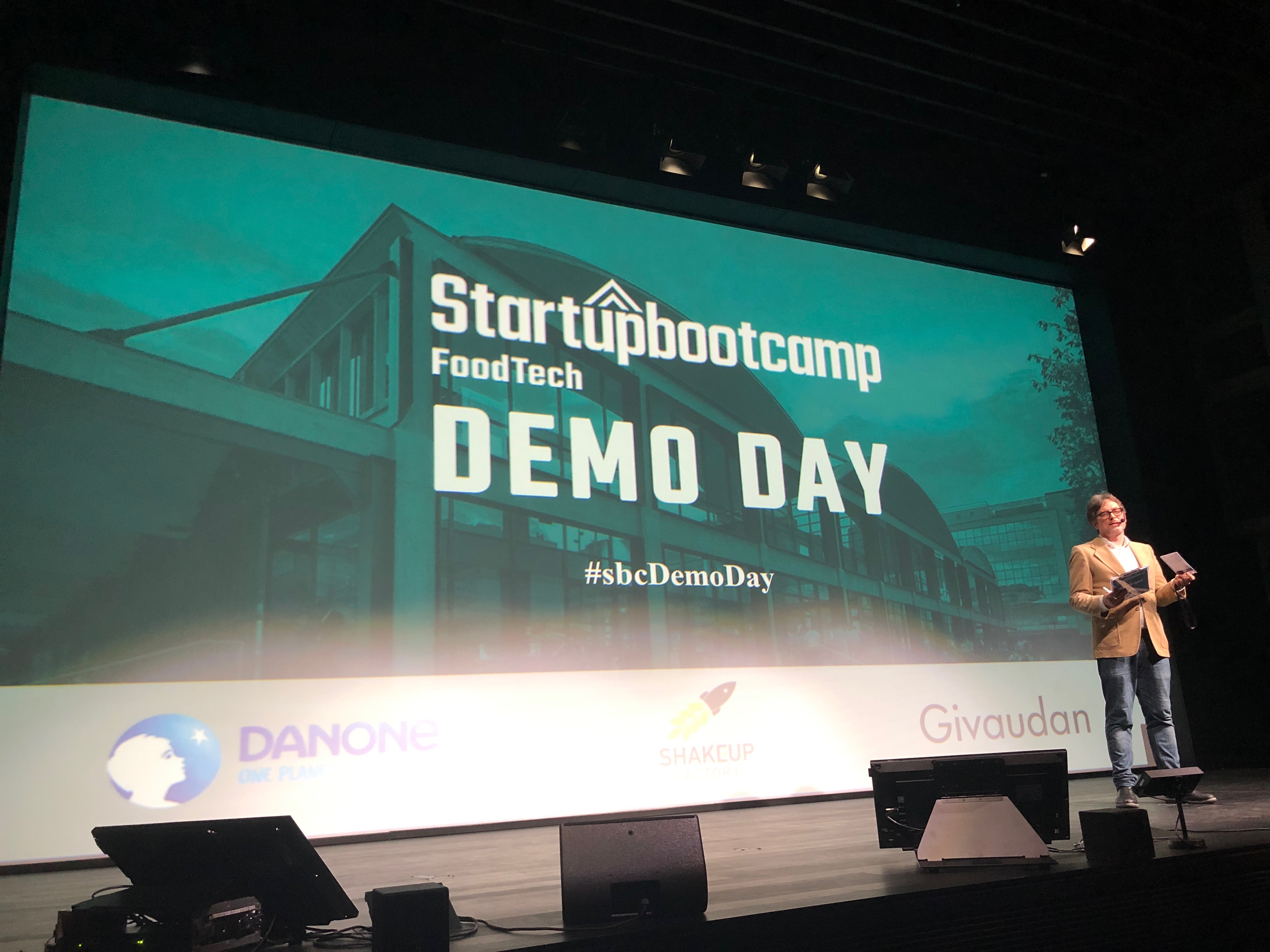Editor’s Note: Johan Jorgensen is founder of Sweden FoodTech, a foodtech acceleration platform, and chairman of FundedByMe, one of Europe’s leading equity crowdfunding platforms. He recently traveled to France for Startupbootcamp FoodTech Demo Day and here offers some expert — and lighthearted — insights.
There is always a reason to go to Paris, but on November 29, some 500+ investors entrepreneurs and corporates went to the city to take part in the Startupbootcamp FoodTech Demo Day. It didn’t hurt that it took place at the legendary startup hub Station F, a converted railroad station that holds the title for world’s largest start-up hub (5,000 residents and over 1,000 startups).
Immaculately stylish — we’re in France — so the framing was the best possible. But nevertheless it was the content that stood out.

Most readers are probably aware of the Startupbootcamp accelerator, that runs programs all across the world across many different sectors. The foodtech program comes out of Rome, Italy, and was in itself a global happening, with pre-events in eleven places, from Shanghai to Silicon Valley. But with a grand finale in Paris.
The presenting companies from this year’s cohort were:
Mushroomcups (Croatia) – tea made out of high quality, naturally grown mushrooms
Hotbox (Italy) – pizza delivery hardware that makes the pizza arrive hot and fresh (and not soggy)
EcoPack (Russia) – edible(!) plastics made out of potatoes and wheat. Yes, true.
Farm-r (UK) – A system letting farmers rent under-utilized equipment
Authenticook (India) – Connecting women home chefs with the market
Poirot (Estonia) – A system for bar inventory and ordering
Vaartani (Spain/India) – AI-based analytics for CPG
And we had a few bonuses who were not in the program, but that were invited to spice up our day:
Kiwi Campus (US) – a system for sidewalk drone delivery
MyFoody (Italy) – lessening waste in stores
OKO (France/Israel) – harvest insurance services for famers in the developing world
Spoonshot (US/UK/India) – using AI in order to define and predict taste profiles
Aggressively Organic (US) – an organic growing system
A1C (Israel) – bread and chocolate with low GI
Real Early Stage Potential
We’re talking early stage, but there was real quality in the room. These companies are fundraising in the neighbourhood of $500,000 to $1 million and we can probably expect a few of them to continue to make headlines.
It is hard to point out personal favourites but I for sure want my future pizzas delivered through a hotbox solution, not arriving cold and soggy! If that was the best or most scalable deal in the room I don’t know, but they solve a real problem that we all can relate to.
We will continue to follow all of them but our hearts go to OKO and Authenticook that both will make the world a better place if they can get their solutions to fly. And the clogged arteries around our hearts hope that A1C will get their low carb solutions out in every market in the world.
Edible plastics sounds weird, but there’s more behind that company than meets the eye. The CEO, Ivan, is also a character that you immediately like. Like Dan of Farm-r and German of Poirot. And the mushroom tea tastes great.
There wasn’t a single person or project in the program not to like. But that’s the characteristic of foodtech. We have just addressed 1% of the value chain/food business so far; there’s so much potential to literally transform the planet through food tech innovation.
French Determination
The French have seen this and are really serious about trying to build a future around foodtech. So serious that they have convinced Startupbootcamp to move their program to Paris from Rome for the next edition. The aim is then to get at least 40% of the next cohort to permanently set up shop in France. Paris is gaining a lot of traction in the foodtech scene, not least through the work of ShakeUp Factory, that was one of the partners of the Startupbootcamp FoodTech program and who acted as the hosts at Station F, their base. ShakeUpFactory is a business accelerator and network catalyst for breakthrough food projects from farm to fork.
According to Kevin Camphiuis, the founder of Shakeup Factory, France is today the market with the most deals in Europe in the foodtech space. While there are arguably a few other really dynamic and leading hubs, like London (UK), Wageningen (Netherlands) and Stockholm (Sweden), Paris has surprised with its strength. While France arguably is fairly conservative when it comes to food (as opposed to the Dutch and the Swedes), there is nevertheless room for the new. And being such a massive food country, the room for the new gets big by default.
Among the interesting facts that Peter Kruger, the dynamic leader of the Startupbootcamp FoodTech program, pointed out was the fact that tech companies have dominated acquisitions in the space — think Alibaba, JustEat and Zomato — versus the European food multinationals that represent just one-third of M&A activity in the space.
Bravo Danone!
Kruger’s comments framed the keynote speech given by Emmanuel Farber, the CEO and Chairman of Danone, the main sponsor of the accelerator.
”The old way of doing things is over,” he said. ”We are learning about the future with you”.
And he actually seemed to mean it. It is always refreshing to hear someone from the incumbents say things like:
”There are so many in the food sector that don’t believe it’s broken. We believe it’s broken.”
Yes, it is.
”We’re here to serve the food revolution.”
Great!
”We want to sign a declaration of interdependence [with the entrepreneurs]”.
Tears in all entrepreneurial eyes.
”There has never been a more important time in the food sector”.
So true. We wish there were more CEOs like him.
And then he backed it all up by stating that the publicly-listed Danone has the ambition to become a B-Corp within 10 years. Simply because that’s what the next generation demands. Bold stuff! Go, Mr. Chairman, go!
Hats off to Danone not just for the great words from the CEO, but for how they have used the program – aggressively.
Over the course of the program, they have involved over 100 individuals from Danone in qualification programs, selection, mentoring and developing entrepreneurs. That has readied the organisation way beyond an M&A team and also put them top of mind of the 700+ entrepreneurs that applied for the program.
Hats off also to Peter Kruger and Aleksandra Bezak for running a great program and a magic Startupbootcamp FoodTech demo day!





